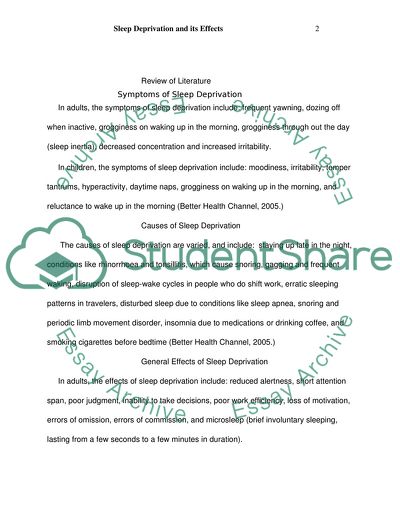Cite this document
(Sleep Deprivation and Its Effects Research Paper, n.d.)
Sleep Deprivation and Its Effects Research Paper. Retrieved from https://studentshare.org/psychology/1704006-sleep-deprivation-and-its-effects
Sleep Deprivation and Its Effects Research Paper. Retrieved from https://studentshare.org/psychology/1704006-sleep-deprivation-and-its-effects
(Sleep Deprivation and Its Effects Research Paper)
Sleep Deprivation and Its Effects Research Paper. https://studentshare.org/psychology/1704006-sleep-deprivation-and-its-effects.
Sleep Deprivation and Its Effects Research Paper. https://studentshare.org/psychology/1704006-sleep-deprivation-and-its-effects.
“Sleep Deprivation and Its Effects Research Paper”. https://studentshare.org/psychology/1704006-sleep-deprivation-and-its-effects.


